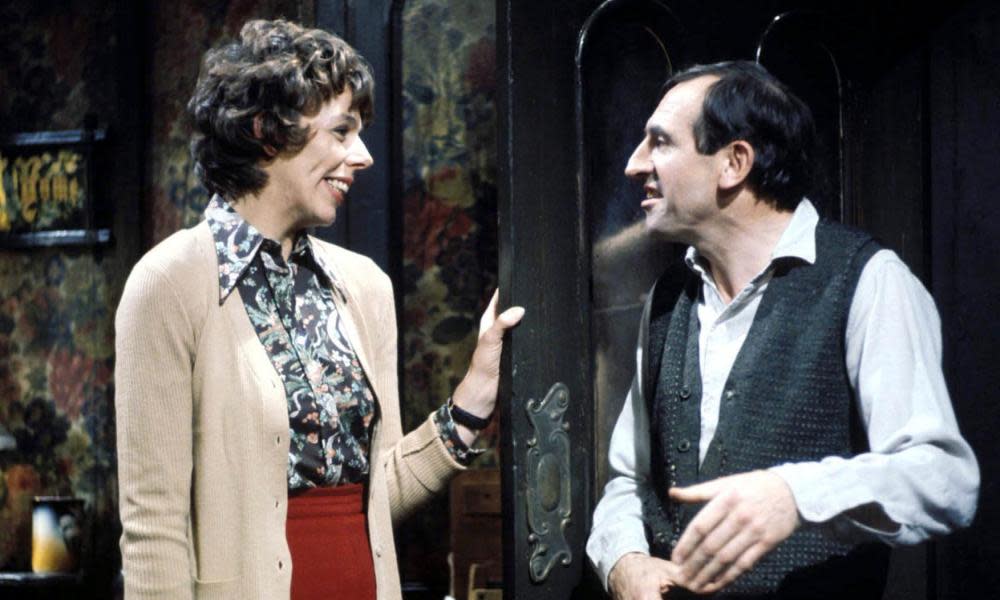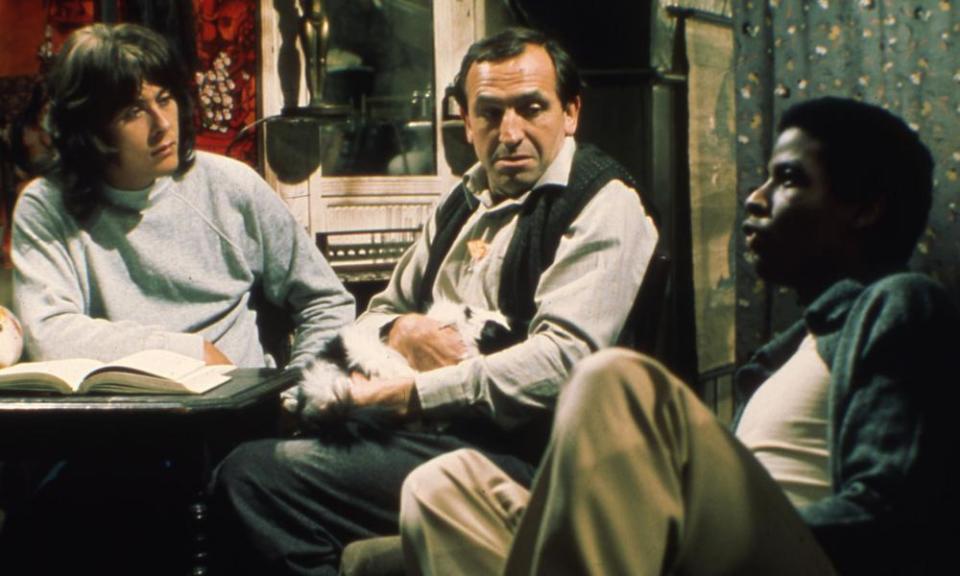How we made: Rising Damp

Eric Chappell, creator/writer
The concept of Rising Damp came from a newspaper article about a black British student who had outwitted white hoteliers, convincing them that he was an African prince. I thought it was a splendid idea for a comic farce, but changed the hotel to a boarding house.
The programme’s first incarnation was as a play called The Banana Box. The Rigsby landlord character was played by Wilfrid Brambell, who was famous at the time for playing Albert Steptoe. I enjoyed his performance – he rose above any expectation that the character would be a copycat Steptoe. But Leonard Rossiter was cast as Rigsby shortly before the play transitioned to TV in 1974. I wrote more dialogue than was necessary for his character: not due to Leonard’s rapid delivery, but because of my own inexperience. If Len liked what I’d scripted, he went into overdrive, giving the harried monologues Rigsby became known for.
I was concerned his prejudicial attitude towards Philip could be misinterpreted by the audience as something to be celebrated or mimicked, as had happened with Johnny Speight’s bigoted and reactionary Alf Garnett. In the bar at the interval of the first night, back when Rising Damp was still a play, I heard a drunken Irishman say: “They have insulted my religion in there!” At that point, I realised people’s prejudices could be deflated with humour, and hoped I had written an intelligent comedy about race relations.

Miss Jones was based on a puritanical aunt of mine who claimed that her husband had never seen her naked. But Frances de la Tour added so much to the role that I began writing for her interpretation of it. I was worried when she temporarily left in the second series, and also when Richard Beckinsale departed in series four due to theatre commitments. I decided to introduce a new female attraction – Brenda, played by Canadian Gabrielle Rose – which worked very well. I also increased Don’s role and brought in extra guests.
When Len won the title role in The Fall and Rise of Reginald Perrin in 1976, I didn’t feel there was any competition between that character and Rigsby. David Nobbs, the creator of Reggie Perrin, is a different writer to me. We work in our own styles. Later, when I was adapting my sitcom Home to Roost for the US, the head writer was fired on the very first day. I never feared I’d face a similar fate. We do not sack writers in England. There aren’t enough of us.
Don Warrington, played Philip Smith
I heard about the part of Philip through a friend and auditioned. I was surprised when I got it. I’d trained to be a serious actor. I didn’t think I had any comic ability at all. I had no idea what a typical sitcom audience was, let alone how one would react to a black leading man at the time. But I was taken by the idea that, in order to have an effect on other people, Philip had created for himself an exotic identity – being the son of an African chief. It was only in the 1980 film adaptation that the truth was finally revealed: he is in fact born and bred in Croydon. Somebody pretending to be something they were not was a window into Philip’s level of insecurity as a human being.

In terms of the programme’s handling of racism, it’s important to remember the nature of this country at the time. Parts of society seemed very frightened of change, and I think Eric’s writing reflected that. The strength of the show was that Rigsby’s xenophobia came less from prejudice, more from a crippling self-doubt. Eric caught something of each tenant that allowed them to say things that, if said by somebody else in different circumstances, would be deeply offensive. Also, the arguments put forward by Rigsby never prevailed. And I think that’s very important. It meant that you were immediately aware of the ignorance of the character who was making those comments, as well as the ignorance of the comments themselves.
Related: Don Warrington: 'I can be angry. I can want to kill'
I enjoyed the coolness of my character. Philip was never fazed by anything, not even Miss Jones flirtatiously saying: “My front tyre needs pumping up.” And Leonard Rossiter was a very adroit man. Once he put his mind to something, he tended to do it rather well. He took his fitness seriously, and beat me very thoroughly when we played squash. I’m sure he would have done very well – even better than I did – on Strictly Come Dancing.
Despite being part of the BBC’s Grumpy Old Men series, I’m not really cynical. I think we’re having a rather difficult time at the moment, and lots of strange things are happening in the world, but becoming cynical doesn’t help. As Rising Damp showed, what else is there but how we live and how we treat each other?

 Yahoo News
Yahoo News 
